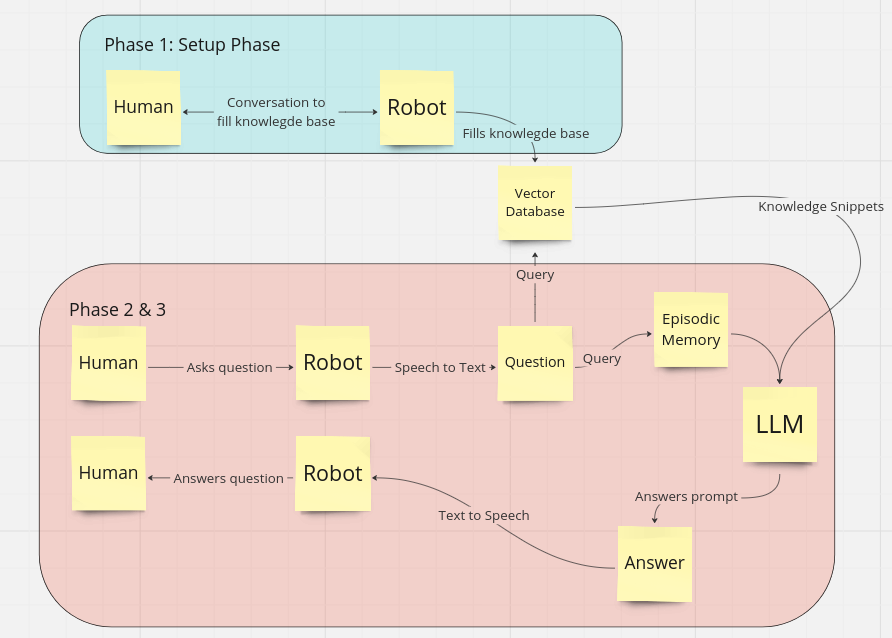c. Technology
To aid individuals with dementia in recalling their familial and social connections, we propose a two-phase methodology.
Phase 1: Establishing knowledge base
In the initial phase, we aim to construct a comprehensive knowledge base through interactive sessions between a robot and a person with early-stage dementia. During these sessions, the robot will engage the individual in a conversation to gather essential information. This information is about their family, including children, partners, and close friends, as well as pertinent details regarding their occupations, relationships, and other significant aspects of their lives. Utilizing speech-to-text technology, all collected information will be encoded and stored in a vector database, forming a personalized and accessible repository of their personal connections and experiences.
Phase 2: Memory retention support
The second phase focuses on leveraging the established knowledge base to reinforce the individual's memory concerning their relationships and family. When the person poses a question, it is converted into text and utilized as a search query within the vector database. This database then retrieves all relevant information snippets, which a large language model processes to construct a coherent and contextually appropriate response. Through text-to-speech technology, this response is vocalized, providing the individual with the information they sought. This system not only aids in memory retention but also fosters a sense of independence and emotional well-being by enabling individuals to reconnect with their personal histories and relationships.

